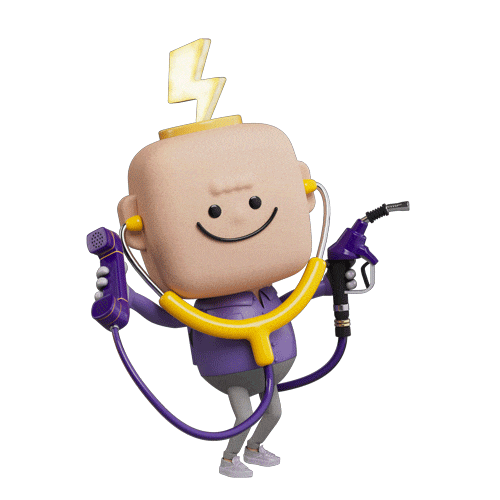Frequently Asked Questions

Pristiq® is a serotonin and norepinephrine reuptake inhibitor (SNRI).1 It is effective in relieving emotional distress by regulating the level of serotonin and norepinephrine in the brain.2 Pristiq® also offers significant improvements in mood associated painful symptoms and restoring life functionality, including work, family life and social life.3,4

Although Pristiq® is effective in managing symptoms of emotional distress,2 it is a prescription-only medicine.5 Whether or not a patient is suitable for Pristiq® is at the discretion of a doctor and based on patient’s clinical condition and medical history. For more information, please consult your doctor.

Pristiq® is not addictive,5 however, it is important that patients follow their agreed medication regimen and do not abruptly stop taking their medicine, unless instructed by their doctor. Abrupt cessation may cause withdrawal symptoms,6 which could worsen emotional distress symptoms.7

All medications have the risks of side effects.8 The most common side effects of Pristiq® include nausea, dizziness, insomnia, and constipation.9 Side effects with Pristiq® usually emerge during the first week and are mostly mild in severity, transient in nature, and often subside.9,10

Clinical study showed no significant change in weight and sexual function for patients on Pristiq® versus placebo.11

Pristiq® is a serotonin-norepinephrine reuptake inhibitor (SNRI),1 norepinephrine plays a determinant role in increasing motivation.12 Pristiq® improves emotional distress symptoms, cognitive and functional outcomes in order to restore patients’ life to premorbid functional level.13 Therefore, compare to the older medications in the same category*, SNRIs, e.g. Pristiq® is less likely to cause sedation.14–16
* Older medications include tricyclic antidepressants (TCAs)

Pristiq® can significantly improve symptoms of emotional distress as early as Week 1 after receiving medication.17 The effects are not immediate and are based on individuals’ response. However, in some patients, the benefits may take a little longer to emerge.

You may begin to feel better after few weeks of medication as it can relieve symptoms of emotional distress.13 But symptom improvement alone does not guarantee full recovery, patients may still have residual symptoms, e.g. insomnia or impaired memory processing, which might affect daily functions and social life.18 So it is important to keep taking your medicine even if you feel better. Making the decision to terminate the medication by yourself may increase the chance of relapse.18 Therefore, please continue taking your medicine for as long as your doctor recommends.
For more information, please consult your doctor.

Study showed that Pristiq® is associated with minimal potential for drug-drug interactions.14,19 However, Pristiq® must not be used in combination with monoamine oxidase inhibitors (MAOIs). Before starting treatment with Pristiq®, please tell your doctor if you are taking MAOIs or only stopped taking MAOIs within the last 14 days.6

Patients who suffer from moderate to severe hepatic impairment can take Pristiq® without dosage adjustment.6 Discuss with your doctor if you have any concerns.

If a dose of Pristiq® is missed, you should take it as soon as you remember. If it is almost time for next dose, skip the dose you missed and then take your next dose at scheduled time. Do not take a double dose at the same time.20
References
- 1. Stahl's Essential Psychopharmacology: Neuroscientific Basis and Practical Applications, 4th edition, Cambridge University Press, 2013.
- 2. Thase ME, et al. CNS Spectr. 2009;14(3):144–154.
- 3. Liebowitz ME, et al. Curr Med Res Opin. 2008;24:1877–1890.
- 4. Soares CN, et al. CNS Spectr. 2019;24(3):322–332.
- 5. 衞生署藥物辦公室. https://www.drugoffice.gov.hk/eps/do/tc/consumer/news_informations/dm_22.html. Accessed 9 JUN 2023.
- 6. Pristiq® (desvenlafaxine) Prescribing Information. Pfizer Corporation Hong Kong Limited: Version May 2024.
- 7. The Dangers of Abruptly Stopping Antidepressants. Healthline. http://www.healthline.com/health. Accessed 9 JUN 2023.
- 8. Medicines and side effects. Better Health Channel. http://www.betterhealth.vic.gov.au/health/. Accessed 9 JUN 2023.
- 9. Boyer P, et al. Int Clin Psychopharmacol. 2008;23:243–253.
- 10. Liebowitz MR & Tourian KA. Prim Care Companion J Clin Psychiatry. 2010;12(3):PCC.09r00845.
- 11. Carrasco JL, et al. Int Clin Psychopharmacol. 2016;31(3):134–146.
- 12. Moret C & Briley M. Neuropsychiatr Dis Treat. 2011;7(Suppl 1):9–13.
- 13. Lam RW. J Affect Disord. 2016;203:55–61.
- 14. Kennedy SH, et al. Can J Psychiatry. 2016;61(9):540–560.
- 15. Santarsieri D & Schwartz TL. Drugs Context 2015;4:212290.
- 16. Managing the Adverse Effects of Antidepressants. Psychiatric Times. https://www.psychiatrictimes.com/view/managing-adverse-effects-antidepressants. Accessed 9 JUN 2023.
- 17. Katzman MA, et al. J Clin Psychopharmacol. 2017;37:555–561.
- 18. Israel JA. Pharmaceuticals (Basel). 2010;3(8):2426–2440.
- 19. Preskorn S, et al. J Clin Psychopharmacol. 2009;29(1):39–43.
- 20. Desvenlafaxine. Drugs.com. https://www.drugs.com/mtm/desvenlafaxine.html. Accessed 9 JUN 2023.
PP-PRQ-HKG-0386 JUN 2023


